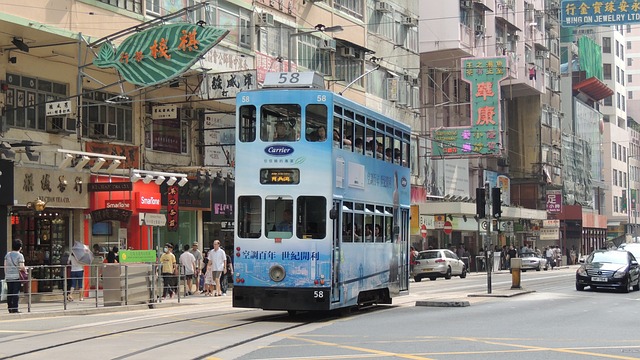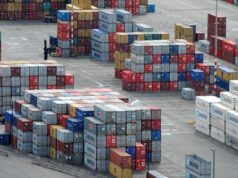
- World Trade Organization panel rules against Washington’s requirement that Hong Kong exports to the US be labelled as “Made in China”
- Hong Kong claims the US requirement was discriminatory and politically motivated, and was against the violated the GATT 1994 of which the SAR is a signatory
- Hong Kong’s Secretary for Commerce and Economic Development Algernon Yausays the panel fully affirms Hong Kong’s status as a separate customs territory
Hong Kong scored a victory in a dispute with the United States over its “Made in Hong Kong” labels on its exports to the US when a World Trade Organization panel ruled against Washington’s requirement to use the “Made in China” marking.
A ruling released by the WTO Dispute Settlement Body on December 21, 2022, said the origin marking requirement imposed on Hong Kong exports to the US is inconsistent with WTO rules.
Washington required starting on November 10, 2020, that all products exported from Hong Kong to the US must be marked “Made in China.”
The HKSAR government swiftly objected via bilateral and multilateral means, saying it violated the General Agreement on Tariffs and Trade of 1994. The Hong Kong complaint prompted DSB to meet on February 22, 2021, and establish a panel to consider the dispute.
The Hong Kong Special Administrative Region’s government immediately welcomed the ruling, which also refuted US invocation of security exceptions and recommended that the US bring the measure into conformity with the GATT 1994.
“The United States has not demonstrated that the situation at issue constitutes an emergency in international relations, and therefore the origin marking requirement is not justified under Article XXI(b)(iii),” the panel said.
Hong Kong’s Secretary for Commerce and Economic Development Algernon Yau, welcoming the ruling, said the panel has fully affirmed Hong Kong’s status as a separate customs territory.
“The ruling has once again confirmed that the US has disregarded international trade rules, attempted to impose discriminatory and unfair requirements unilaterally, unreasonably suppressed Hong Kong products and enterprises, and politicized economic and trade issues,” Yau said.
The official said the revised origin marking requirement was politically motivated and a vain attempt to interfere with Hong Kong’s internal affairs by weaponizing trade.
“The panel categorically refuted the erroneous and groundless views of the US, and gave a clear ruling that the US has violated WTO rules. I have written to the US Trade Representative, urging the US to respect the ruling and immediately withdraw the requirement which violates WTO rules,” Yau stressed.
Under “one country, two systems,” Hong Kong is a separate customs territory and may, under the name “Hong Kong, China,” join international organizations such as the WTO and develop mutually beneficial economic and trade relations with economies around the world.
On December 21, the WTO published the ruling on its website. “In our view, our findings under Article IX:1 capture the discriminatory dimension of the origin marking requirement that Hong Kong, China has challenged under Article I:1, and we have found it not to be justified under Article XXI(b)(iii),” the panel said.
The panel said Hong Kong’s arguments on the origin marking requirement being inconsistent with the WTO’s Agreement on Rules of Origin (ARO) are based on the factual premise that the US determines that the products subject to the origin marking requirement originate in China.
“…Our finding that the United States determines their origin to be Hong Kong, China means that the factual basis for contending that the present dispute involves ‘rules of origin’ within the meaning of Article 1 of the ARO is incorrect,” the panel said.
“We therefore do not consider it necessary to make additional findings under the ARO to assist the DSB in making sufficiently precise recommendations and rulings.”
The panel said it exercised judicial economy on Hong Kong’s claims that the origin marking requirement is inconsistent with Article I:1 of the GATT 1994, Articles 2(c) and 2(d) of the ARO, and Article 2.1 of the Technical Barriers to Trade Agreement.
The panel also said in cases where there is an infringement of the obligations assumed under a covered agreement, the action is considered prima facie to constitute a case of nullification or impairment.
“We conclude that, to the extent that the measure at issue is inconsistent with Article IX:1 of the GATT 1994, it has nullified or impaired benefits accruing to Hong Kong, China under that agreement.
Pursuant to Article 19.1 of the DSU, we recommend that the United States bring its measure into conformity with its obligations under the GATT 1994.”
RELATED READ: WTO rules vs US tariffs on China steel, aluminium








